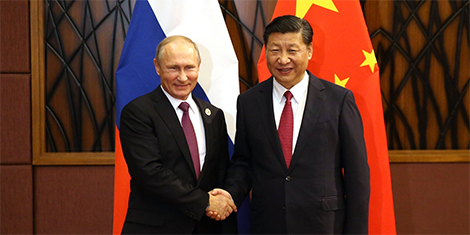By Liu Zongyi
The twice-postponed two plus two ministerial dialogue between the US and India took place on September 6 in New Delhi, during which US Secretary of State Mike Pompeo and Defense Secretary James Mattis held talks with their Indian counterparts - External Affairs Minister Sushma Swaraj and Defense Minister Nirmala Sitharaman, over a string of issues including bilateral security cooperation, US sanctions against Iran and India's purchase of Russian air defense missiles. Before the dialogue, many analysts thought the US demand to halt India's oil imports from Iran and India's purchase of Russian S-400 air defense system, especially the latter, would hinder the progress of the US-India strategic defense partnership. Unexpectedly, Washington made concessions on these issues. An important step forward, the US and India signed the Communications Compatibility and Security Agreement (COMCASA), and agreed to hold joint exercises involving the air force, navy and the army off the eastern Indian coast in 2019. The dialogue yielded a satisfactory result for India.

















/arc-anglerfish-arc2-prod-mco.s3.amazonaws.com/public/YLZU56RQQ5F6BFMURCSKCFA2KI.jpg)
/arc-anglerfish-arc2-prod-mco.s3.amazonaws.com/public/OSEAMLEYNREJ3PBYKWVF3BXQPI.jpg)

